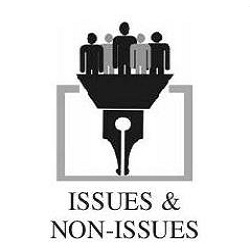Winds Of Change In Kashmir !
| Date :26-Oct-2024 |

By Vijay Phanshikar :
It needs to be noted that Mr. Omar Abdullah is insisting upon restoration of
statehood, but appears to have dropped the demand for the
restoration of Special Status to the region (which the Centre had abrogated on August 5, 2019). This demand was actually one of the main planks of the I.N.D.I. Alliance during the recent
legislative elections.
New Delhi, October 24 (PTI): Jammu and Kashmir Chief Minister Omar Abdullah, who is on his first visit to Delhi after assuming office, called on Prime Minister Narendra Modi on Thursday and handed over to him a resolution seeking early restoration of statehood to the Union Territory, officials said.
The meeting lasted over 40 minutes during which Abdullah discussed various issues related to Jammu and Kashmir. After the meeting, the Prime Minister’s Office tweeted its pictures. It may be recalled that Mr. Omar Abdullah also called on Union Home Minister Mr. Amit Shah, as well.
THIS development may appear routine, in a way, as almost every Chief Minister makes such calls once he -- or she -- assumes office in a State. But in this case, the situation has nuances that need to deciphered correctly. For, even as he took oath of office, Mr. Omar Abdullah had made it clear that he would work closely with the Central Government to achieve the developmental goals of the Union Territory. And he quickly followed up with a visit to the national capital to place before the Central leaders the resolution seeking restoration of statehood to Jammu and Kashmir.
This train of events has, however, sent waves of doubts about a possible political realignment in Kashmir.
It needs to be noted that Mr. Omar Abdullah is insisting upon restoration of statehood, but appears to have dropped the demand for the restoration of Special Status to the region (which the Centre had abrogated on August 5, 2019). This demand was actually one of the main planks of the I.N.D.I. Alliance during the recent legislative elections.
So, here is the new picture
-- the National Conference drops the demand for restoration of Special Status (or pre-1953 status, so to say). It also does not include its ally Congress in the Council of Ministers (with rumours doing the rounds about major differences of opinion on many issues between the two partners of the I.N.D.I. Alliance).
This is one political dimension. The other dimension is of the election promise the National Conference had made to its standard (Muslim) vote bank -- about restoration of both, statehood and Special Status. So, how does that votebank react to Chief Minister Mr. Omar Abdullah’s new stand of truncated demand.
In other words, there appears on the horizon a possibility of another political adjustment in which the Centre’s assertion that nobody can restore Special Status to Kashmir gains an upper hand.
This suggests that Kashmir politics has already taken a twist in favour of the Central Government led by Bharatiya Janata Party (BJP). In other words, the development suggests that the BJP has been marching on its chosen path in Kashmir -- of replacing separatism with nationalism. In the recent legislative elections, those efforts paid good dividends. In Jammu, the BJP expanded its footprint, and increased its vote share (higher than that of the National Conference overall) in the Kashmir Valley. In this process, the third player, the People’s Democratic Party (PDP) led by former Chief Minister Mrs. Mehbooba Mufti got almost totally sidelined as did Congress party.
These are the unmistakable signs of positive political change in Jammu and Kashmir which nobody will miss.
Of course, it may be naive to expect a sea-change in Kashmir in a short span. But there is no doubt that separatism -- played on by anybody -- would get wiped out from Kashmir in due time and the region would get integrated with the rest of the country more completely -- of which early signs are available now (by way of the NC not raising the issue of restoration of Special Status, and by way of promising full cooperation with the Centre on developmental agenda).
This is not reading too much in the developments in Kashmir.
This is only offering an interpretation of what may be forthcoming in the region that has stayed troubled for decades.
Of course, it must be stated again and again that unfortunately, nobody is talking about re-settling the displaced Kashmiri Pandit community people who fell prey to an ethnic genocide in Kashmir when Dr. Farooq Abdullah was Chief Minister. If that issue is not tackled posthaste, then the region of Kashmir may never fulfill its nationalistic commitment. But if the national agenda starts getting an increased recognition in the region, things will start improving.
This is only a hope at the moment, backed by some happy signs on the horizon. A very conscious effort will have to be made by the Central as well as the Jammu and Kashmir Governments to push the nationalistic agenda. With National Conference in power, this may prove to be a pipe-dream -- by normal standards. But if Mr. Omar Abdullah is really willing to change his method and manner, then some good developments could be expected in the coming times. Yet, we can be sure, things are changing in Jammu and Kashmir.
